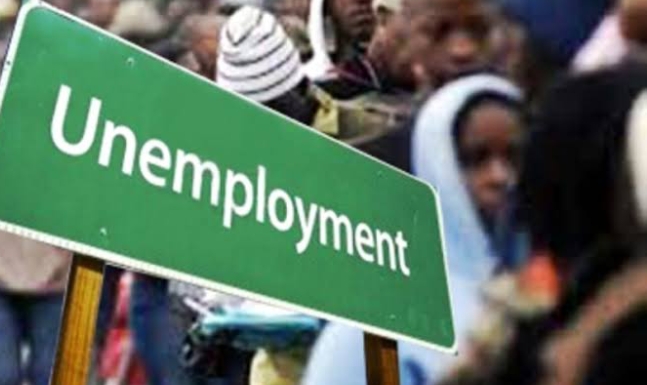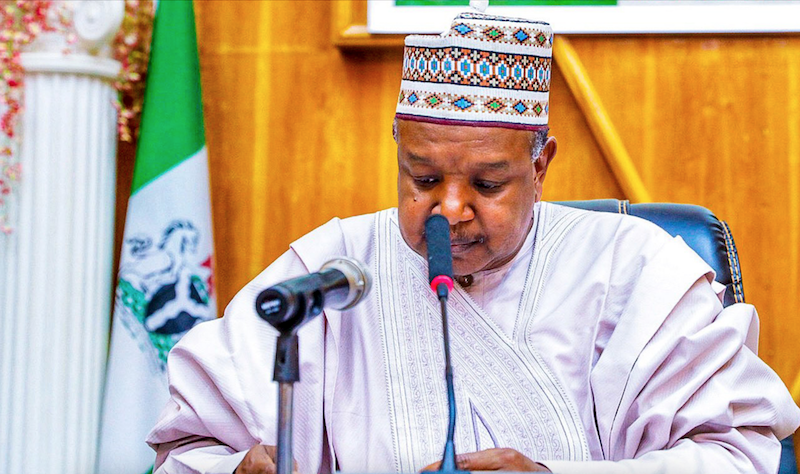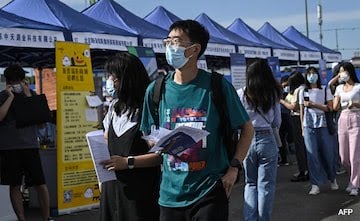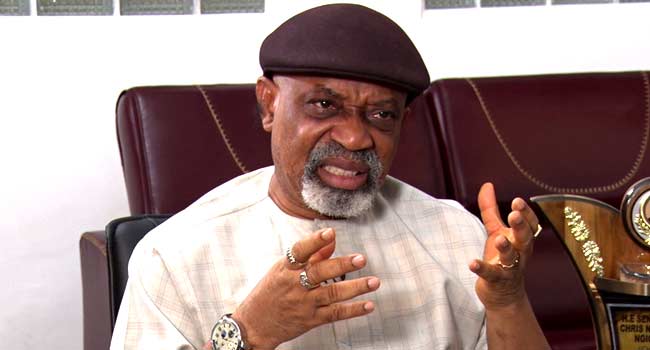The Federal Government says it targets to reduce poverty rate to 0.6 per cent and unemployment rate to 6.3 per cent by 2030 and 2050 agenda.
The Minister of Budget and Economic Planning, Sen. Atiku Bagudu, said this at a news briefing for the 29th Nigerian Economic Summit (#NES29) in Abuja on Thursday.
The theme of the #NES29 scheduled for Oct. 23 to Oct. 24 at the Transcorp Hilton, Abuja is “Pathways to Sustainable Economic Transformation and Inclusion”.
Bagudu said that the theme was chosen to discuss the imperatives for transforming the nation’s economy while ensuring inclusivity.
He said that the discussions around the theme would be on five sub-themes; namely, stimulating economic growth and mobilizing finance for sustainable development.
They also include harnessing human capital development, promoting national cohesion inclusion and reforming public institutions, among others.
Bagudu said that the sub-themes would address relevant pillars in the National Development Plan (NDP) 2021-2025, the Nigeria Agenda 2050 and the Renewed Hope Agenda.
“The main target of the Nigeria Agenda 2050 is to increase the country’s per capita GDP to 6,000 dollars and 33,000 dollars by 2030 and 2050 respectively.
“It will also bring the poverty rate to 0.6 per cent and unemployment rate to 6.3 per cent, while transiting the economy to the highest per capita GDP in the group of upper-middle income economies.
“The plan will be effectively implemented by successive governments through six number 5-Year Medium-Term National Development Plans and Annual Budgets,” he said.
The minister said that the renewed hope agenda and eight priority areas of the current administration were aimed at fast-tracking the goals of the Nigeria Agenda 2050
Also, the NDP 2021-2025 with a double-digit growth rate and inclusive development.
“The ministry is in the process of conducting the mid-term review of the NDP 2021-2025 with the purpose of fine-tuning the plan and ensuring that the renewed hope agenda of the current government is incorporated into the NDP 2021-2025.
“The Ministry will welcome innovative ideas from the stakeholders at the summit to ensure its effective integration into the NDP 2021-2025,” Bagudu said.
He said that the success of the summit would depend on the active and deliberate participation of all critical stakeholders.
The stakeholders, according to him include, the federal government, sub-national government, private sector operators, civil society organisations, the media and development partners,” Bagudu said.
The minister commended the contributions and commitments of the various corporate organisations and government institutions towards the successful hosting of the summit.
The Chairman of the Nigerian Economic Summit Group (NESG) Mr Olaniyi Yusuf, said their objective was to promote development in the country.
“In the face of a rapidly changing global economic landscape and increasing inequalities, a strategy for sustained growth must ensure a form of industrialization that makes opportunities accessible to all people and broadly distributes income and non-income gains across society.
“Our inability to fully integrate solutions to social issues into targeted industrial and economic policies undermines the developmental potential of our country, thus widening income inequality gaps.
“While there has been a broad decline in poverty worldwide, both extreme and moderate poverty remain and continue to increase in our country.
“Low productivity, inadequately diversified local economic activity, high unemployment rates and job insecurity remain a challenge for our country,” he said.
Yusuf said that the country’s pressing concern was the need to translate economic growth into improved living standards for all its citizens.
“In spite of experiencing growth at an average rate of over the past years, the country grapples with rising unemployment, income disparity, and multidimensional poverty.
“These challenges are worsened by an uneven allocation of resources, macroeconomic instability, and institutional deficiencies.
“Data from the National Bureau of Statistics (NBS) in 2022 revealed that approximately 62.9 per cent of the population (i.e., 133 million people) live in multidimensional poverty, threatening the development of a vibrant middle class,” he said
Yusuf said that the country’s youthful population presented a tremendous opportunity for accelerating national development through entrepreneurship and innovation.
He said: “With a large pool of creative and ambitious young minds, the country has the potential to foster a vibrant start-up ecosystem and drive economic growth.
“By leveraging technology and innovation, these creative minds can introduce disruptive solutions, create jobs, and contribute to the overall progress of the Nigerian economy,” he said.
The chairman said that 2023 presented another opportunity to demonstrate a strong political will to tackle Nigeria’s socio-economic challenges.
“Hence, the NESG aims to focus on enhancing the role of entrepreneurship, skills and innovation, as well as sub-national and local governments, as drivers of economic growth and development.
“The ultimate objective is to foster the creation of a more inclusive, sustainable, and equitable economy.
“The summit aims to foster collaboration among key stakeholders from diverse sectors and devise effective strategies to promote good governance at all levels of government,” he said.
The NES was organized annually by the Federal Ministry of Budget and Economic Planning and the Nigerian Economic Summit Group (NESG).









